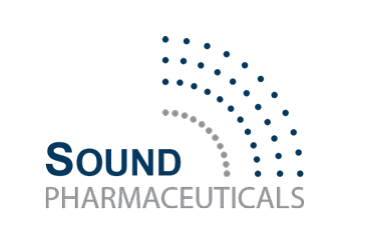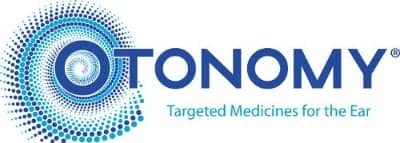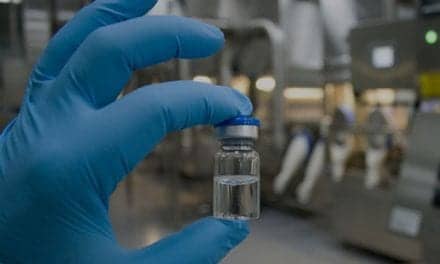Summary: Sound Pharmaceuticals’ Phase 3 trial of SPI-1005, an anti-inflammatory drug for Meniere’s disease, met its co-primary endpoints, showing significant improvements in hearing loss and speech discrimination.
Takeaways:
- First-of-Its-Kind Success: SPI-1005 is the first treatment to demonstrate efficacy in addressing hearing loss and speech discrimination in Meniere’s disease, a condition with no FDA-approved therapies.
- Clinical Trial Results: The SPI-1005 group showed significant gains in low-frequency hearing and speech discrimination compared to placebo, with improvements continuing during the open-label extension.
- Future Outlook: Full trial data will be presented at the 2025 Association for Research in Otolaryngology Midwinter Meeting, offering insights into SPI-1005’s potential to transform Meniere’s disease management.
Sound Pharmaceuticals announced that the Phase 3 clinical trial involving SPI-1005, a novel anti-inflammatory compound (ebselen), for the treatment of Meniere’s Disease (STOPMD-3), achieved its co-primary endpoints for efficacy involving improvements in hearing loss and speech discrimination.
Impact of Meniere’s Disease
Meniere’s disease (MD) is an inner ear disorder that involves fluctuating hearing loss and tinnitus, and episodic vertigo and/or dizziness. There are no FDA-approved medical treatments for MD, nor for the treatment of hearing loss, tinnitus, vertigo, or dizziness. SPI-1005 is an oral capsule containing 200 mg ebselen that has shown safety and efficacy in several Phase 2 clinical trials involving multiple hearing loss and tinnitus indications including MD.
For the definite diagnosis of MD, the American Academy of Otolaryngology-Head & Neck Surgery guidance requires audiometric documentation of low frequency hearing loss (i.e., ≥30 dB) in at least one ear using pure tone audiometry. Loss of speech discrimination, especially in noisy environments or when tinnitus is present, is common in MD and other forms of sensorineural hearing loss. MD is currently managed with low salt diets, thiazide diuretics, and oral or locally injected steroids. Unfortunately, this standard of care has not proven effective and is not FDA-approved for the treatment of MD.
About the Clinical Trial
STOPMD-3 enrolled adult subjects (N=221) with a history of definite MD and active symptoms into a randomized double-blind placebo-controlled trial (RCT) in which subjects received 28 days of either SPI-1005 (400 mg twice daily) or placebo treatment with monthly follow-up assessments of auditory and vestibular function through 84 days. Compliant patients could immediately enter an open label extension (OLE) of SPI-1005 treatment for up to 12 months.
During OLE, subjects continued to receive SPI-1005 and had their auditory and vestibular function reassessed every 3 months. In both the intent-to-treat and per-protocol RCT analysis, the SPI-1005 group showed higher rates of improvement in low frequency hearing loss (≥10 dB gain at one low frequency from baseline) using pure-tone audiometry (LFPTA) and speech discrimination (≥4-word increase from baseline) using the words-in-noise (WIN) test than the placebo group at day 28, 56, and 84 of follow-up.
Further Reading
On day 84, the SPI-1005 group showed a significant rate of LFPTA improvement over placebo (57.9% vs 36.5%, an increase of 58.6% over placebo, p-value=0.0037). When LFPTA criteria were increased to require a ≥10 dB gain at two adjacent low frequencies from baseline, the SPI-1005 group showed a significant rate of improvement of 204.4% over placebo (41.1% vs 13.5%, p-value <0.0001). On day 84, the SPI-1005 group showed a significant rate of WIN improvement of 54.4% over placebo (42.1% vs. 27.1%, p=0.0336).
During OLE, responder rates involving LFPTA and WIN continued to improve, and patient reported outcome measures for tinnitus, vertigo, aural fullness, and dizziness severity all improved significantly from baseline (≥30% on average, p-value <0.001).
“We would like to thank all of our investigators and study participants for contributing to this pivotal Phase 3 trial success involving SPI-1005,” says Jonathan Kil, MD, CEO of Sound Pharmaceuticals. A presentation of the full RCT/OLE data analysis as well as additional post-hoc analysis will occur at the Association for Research in Otolaryngology Midwinter Meeting in Orlando FL, Feb. 22-26, 2025.




